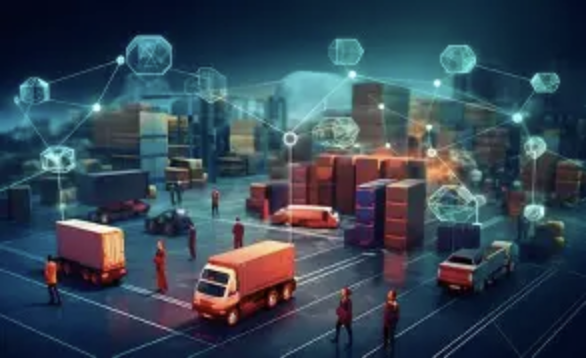Has the computer made the world clearer and more efficient?
In the pursuit of efficiency and order, the emergence of computers is undoubtedly an epoch-making milestone. It processes information at an unimaginable speed and accuracy, as if it were a "brain" tailored for our complex world. However, has the computer really made our world clearer and more efficient? The solution to this issue might not be as straightforward as we initially believed.

On the positive side, the progress brought by computers is obvious. In the field of scientific research, powerful computing power makes complex simulation and data analysis possible. The once unimaginable tasks, such as the construction of climate model, the molecular design of new drugs, and the simulation of galaxy evolution in astrophysics, are now realized with the help of computers. It greatly expands the boundary of human cognition, allowing us to glimpse the macro and micro worlds that the naked eye can't reach.
In the commercial and industrial sectors, computers are also crucial for enhancing efficiency. Automatic production line, inventory management system and real-time tracking of global supply chain, the application of these technologies greatly optimizes resource allocation and reduces production costs. It liberates countless tedious and repetitive tasks from human hands, so that we can devote our energy to more creative and strategic work. Through standardized data processing and algorithms, computers have built a rigorous and orderly digital world, which makes the decision-making process more based on facts and logic than experience and intuition.

Nonetheless, the other side of the argument is equally worth considering. Is the huge amount of information brought by computers really equal to "clarity"? In the ocean of the internet, the flood of information is full of mud and sand, and it is difficult to distinguish between authenticity and falsehood. We are often surrounded by the content pushed by various algorithms, which makes it easier for us to fall into the "information cocoon room" and our vision becomes narrow. Knowledge that once required painstaking data collection and independent thinking is now readily available, which may not only facilitate us, but also weaken our ability of independent thinking and critical analysis.
In addition, there are new complexities hidden behind high efficiency. With the increasing scale and interconnection of computer systems, our dependence on it has reached an unprecedented level. Once the system crashes, data is lost or network attacks occur, its chain reaction may lead to huge social and economic chaos. In order to pursue higher efficiency, we have built a highly sophisticated digital building, but the foundation of this building may be shaken by a small program loophole.

Therefore, computers do not simply make the world "clearer and more efficient", but provide powerful tools and also pose new challenges. It forces us to re-examine the relationship between information and knowledge, balance efficiency and safety, and be alert to the possible degradation of thinking caused by technological progress. Computer is a mirror, which reflects our desire for order and efficiency, and reminds us that true wisdom and clarity ultimately come from human's own examination and choice.
(Writer:Dick)

